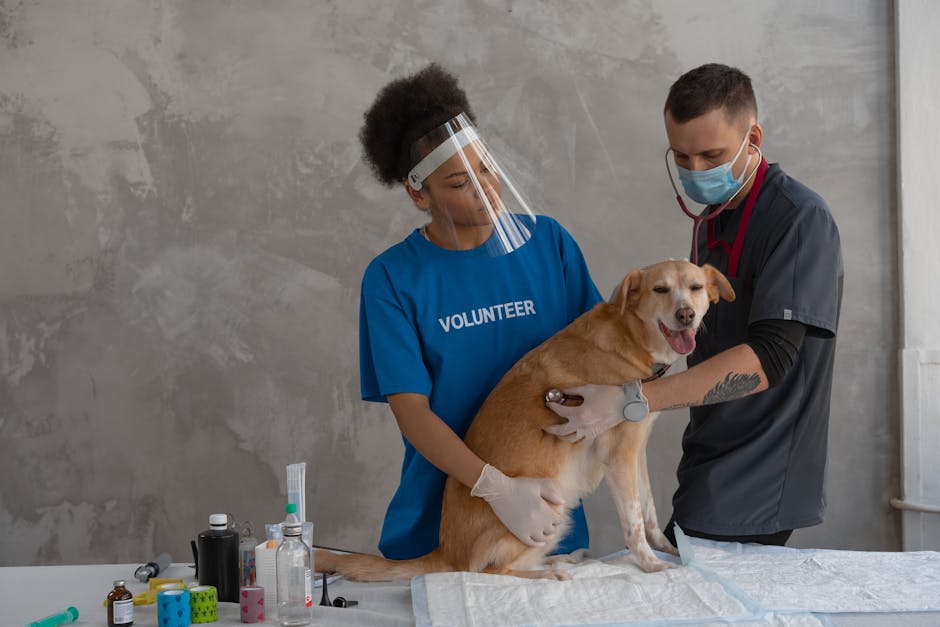Early detection of disease is paramount. Many ailments, such as kidney disease, heart conditions, and certain cancers, often exhibit no overt symptoms in their early stages. By the time a pet displays noticeable signs of illness, the disease might be advanced and treatment significantly more challenging and costly. A comprehensive veterinary examination, including physical assessment, blood work, and potentially imaging techniques, can reveal these hidden issues long before clinical manifestations appear. This early diagnosis allows for timely intervention, increasing the likelihood of successful treatment and prolonging lifespan.
Beyond detecting disease, regular checkups play a crucial role in preventative measures. Vaccinations protect against potentially fatal infectious diseases like rabies, distemper, and feline leukemia. These are administered according to a carefully designed schedule, tailored to the species and specific vulnerabilities of your pet. Furthermore, parasite prevention is integral. Internal and external parasites can cause a range of problems, from mild discomfort to severe illness and even death. Heartworm prevention, flea and tick control, and deworming medications are all part of a comprehensive preventative healthcare plan that your veterinarian will help you establish.
Dental care is another area significantly addressed during routine checkups. Periodontal disease is extremely common in pets and can lead to painful infections, tooth loss, and even systemic problems affecting the heart, kidneys, and liver. Regular dental cleanings, often performed under anesthesia to ensure a thorough procedure, are essential for maintaining oral health. Your veterinarian can also advise on proper at-home dental care, including brushing techniques and dental chews, further reducing the risk of dental problems.
A veterinarian’s expertise extends beyond diagnosis and treatment. They are a valuable resource for advice on all aspects of your pet’s well-being. Nutritional guidance, ensuring your pet receives the appropriate diet for their age, breed, and health status, is vital. They can also provide guidance on exercise, behavioral concerns, and lifestyle choices to promote optimal physical and mental health. Furthermore, they can address concerns relating to weight management, a prevalent issue contributing to numerous health problems in pets.
Regular checkups also provide an opportunity for your veterinarian to monitor your pet’s overall health trends. By tracking weight, body condition score, and other vital parameters over time, they can identify subtle changes that might indicate underlying problems. This longitudinal perspective allows for early intervention and personalized care, adapting the approach to your pet’s specific needs and circumstances.
Moreover, your veterinarian can offer advice on age-appropriate care. The needs of a young puppy differ drastically from those of a senior dog, and understanding these variations is crucial for providing optimal care. Senior pets often require more frequent checkups, with a greater focus on detecting and managing age-related conditions. Regular checkups are therefore vital throughout a pet’s entire life, ensuring that their care remains appropriately tailored to their current stage of development and health.
Beyond the tangible health benefits, regular veterinary visits foster a strong bond between you and your veterinarian. This relationship is invaluable, providing you with a trusted source of information and support throughout your pet’s life. They can answer your questions, address your concerns, and provide reassurance, allowing you to be more confident in your ability to provide the best possible care for your companion. Building this relationship early is key, fostering communication and enabling prompt action should any health concerns arise.
Finally, considering the cost implications, proactive preventative care is often more economical than reactive treatment. The cost of regular checkups pales in comparison to the potentially exorbitant expenses associated with treating advanced diseases or emergency situations. Addressing health issues early, through regular monitoring and preventative measures, can dramatically reduce the likelihood of costly and emotionally distressing situations later on. Ultimately, investing in regular veterinary checkups is an investment in your pet’s long-term health, happiness, and well-being, while simultaneously offering significant peace of mind for you as the responsible pet owner. It underscores the commitment you have towards your animal companion and solidifies your role as their guardian and advocate.
